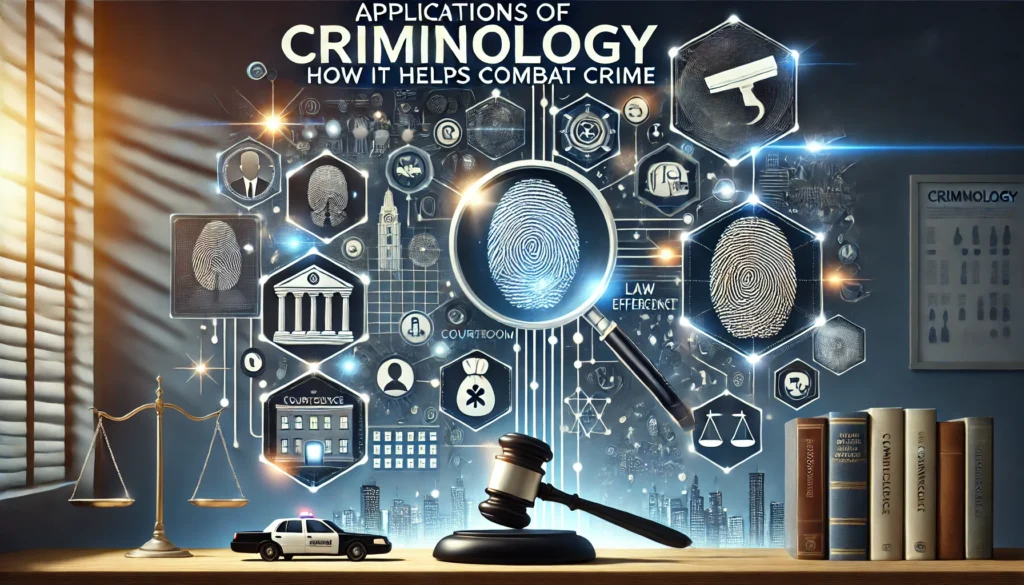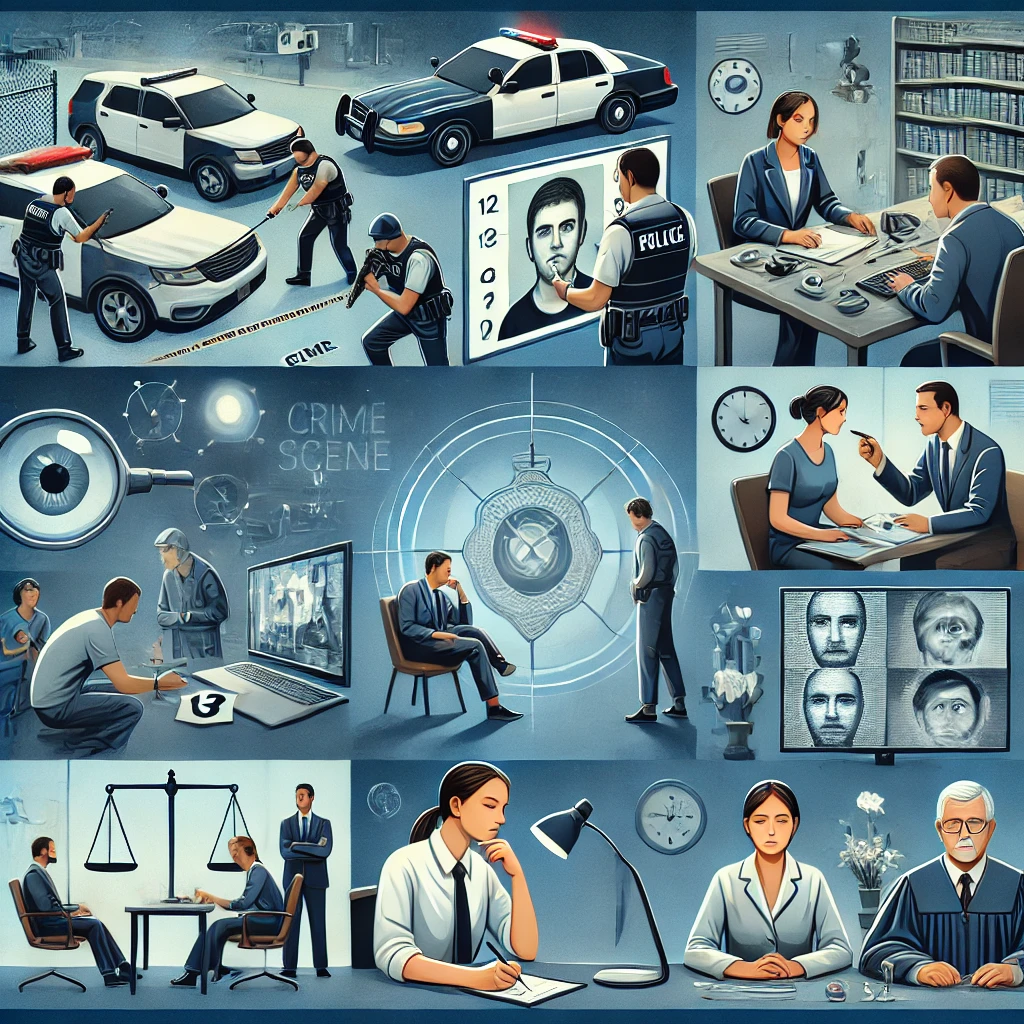Criminology, the study of crime and criminal behavior, offers invaluable insights into preventing and addressing crime. By integrating research, theories, and practical strategies, criminology aids law enforcement agencies, policymakers, and communities in combating crime effectively. This article explores the practical applications of criminology and its role in developing solutions to modern criminal challenges.
1. Crime Prevention Strategies
Criminology plays a pivotal role in formulating strategies to prevent crime before it occurs.
Community-Based Approaches
- Neighborhood Watch Programs: Engaging communities to monitor and report suspicious activities.
- Crime Prevention Through Environmental Design (CPTED): Modifying physical environments to deter crime.
Policy Development
Criminological research informs public policies aimed at reducing crime rates, such as gun control laws, drug prevention initiatives, and youth diversion programs.
2. Enhancing Law Enforcement Practices
Criminology aids law enforcement by improving techniques for crime detection and offender management.
Profiling and Behavioral Analysis
- Offender Profiling: Criminological theories help in identifying patterns of criminal behavior.
- Predictive Policing: Using crime data to anticipate and prevent potential offenses.
Training and Education
Law enforcement personnel benefit from training in criminological principles, such as understanding criminal psychology and cultural sensitivity.
3. Rehabilitation and Reintegration
Criminology emphasizes rehabilitation as a cornerstone of reducing recidivism.
Programs for Offenders
- Cognitive-Behavioral Therapy (CBT): Addressing thought patterns that lead to criminal behavior.
- Skill Development: Providing vocational training to prepare offenders for reintegration.
Restorative Justice Practices
Criminological research supports restorative justice, where offenders reconcile with victims and the community, fostering accountability and healing.
4. Technological Integration
The integration of technology and criminology has revolutionized crime prevention and investigation.
Crime Mapping and Data Analysis
- Geospatial Analysis: Identifying crime hotspots and deploying resources strategically.
- Big Data: Analyzing vast datasets to predict trends and behaviors.
Forensic Innovations
Advancements in forensic science, such as DNA analysis and digital forensics, are grounded in criminological principles.

5. Shaping Criminal Justice Systems
Criminology informs the development and reform of criminal justice systems to ensure fairness and efficiency.
Fair Sentencing
Research helps in identifying biases in sentencing and advocating for equity in punishment.
Juvenile Justice
Criminology contributes to specialized approaches for juvenile offenders, emphasizing rehabilitation over punishment.
6. Addressing Modern Challenges
Criminology adapts to address emerging crimes and societal issues.
Cybercrime
Criminologists study online criminal activities, such as hacking, identity theft, and cyberbullying, to develop prevention mechanisms.
Terrorism
Analyzing the motivations and methods of terrorist groups aids in creating counter-terrorism strategies.
Human Trafficking
Criminology helps uncover networks and develop victim-support systems to combat trafficking.
7. Policy Advocacy and Public Awareness
Criminologists play a crucial role in advocating for policies that address the root causes of crime.
- Educational Campaigns: Raising awareness about domestic violence, drug abuse, and other social issues.
- Legislative Input: Providing expert insights during the drafting of laws and regulations.
8. Interdisciplinary Collaboration
Criminology collaborates with other fields to tackle crime comprehensively.
- Psychology: Understanding mental health issues among offenders.
- Sociology: Analyzing the societal factors contributing to crime.
- Economics: Studying the impact of poverty and unemployment on criminal behavior.
Conclusion
The applications of criminology extend far beyond academic study, shaping real-world strategies to combat crime effectively. By bridging research and practice, criminology enhances crime prevention, law enforcement, and justice systems. As crime evolves, the field continues to innovate, ensuring safer communities and a more equitable society.

